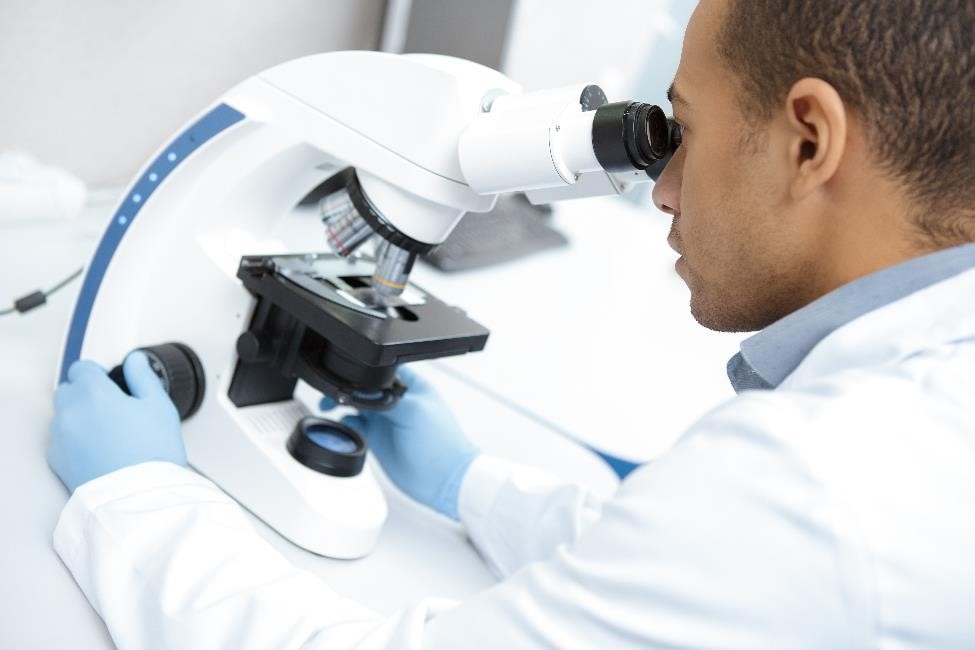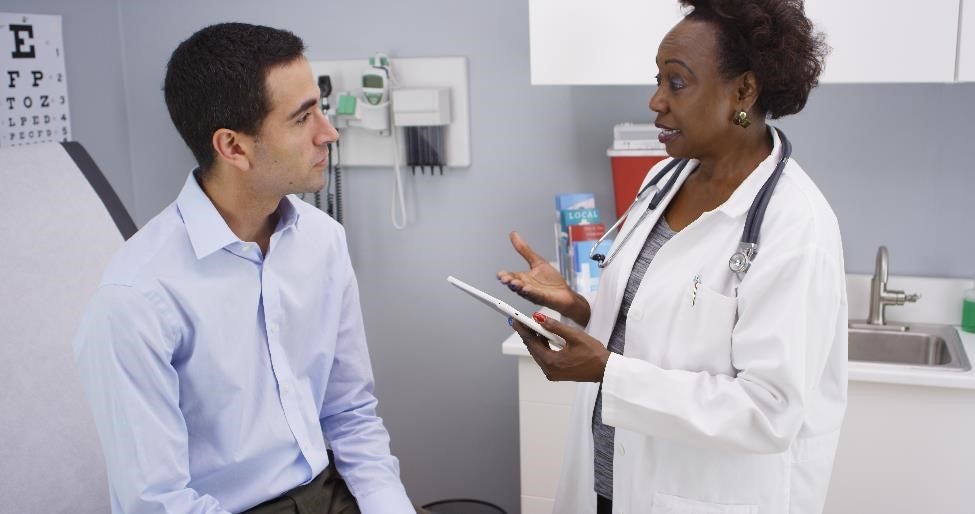Microscopic Colitis
Return to Overview PageDefinition & Facts
In this section:
- What is microscopic colitis?
- How common is microscopic colitis?
- Who is more likely to have microscopic colitis?
- What other health problems do people with microscopic colitis have?
- What are the complications of microscopic colitis?
What is microscopic colitis?
Microscopic colitis is a chronic disease in which abnormal reactions of the immune system cause inflammation on the inner lining of your colon. Doctors can only see this inflammation by looking at colon tissue under a microscope.
Microscopic colitis is an inflammatory bowel disease (IBD). Crohn’s disease and ulcerative colitis are other common types of IBD. Unlike the other types of IBD, microscopic colitis does not increase your risk of developing colon cancer.
Two types of microscopic colitis are lymphocytic colitis and collagenous colitis. The two types cause different changes in colon tissue.
- In lymphocytic colitis, the colon lining contains more white blood cells than normal. The layer of collagen under the colon lining is normal or only slightly thicker than normal.
- In collagenous colitis, the layer of collagen under the colon lining is thicker than normal. The colon lining may also contain more white blood cells than normal.
Doctors call both types microscopic colitis, and they have the same symptoms and treatments.
 Doctors can only see the inflammation caused by microscopic colitis by looking at colon tissue under a microscope.
Doctors can only see the inflammation caused by microscopic colitis by looking at colon tissue under a microscope.How common is microscopic colitis?
Research suggests that, in the United States, about 700,000 people have microscopic colitis.1
Who is more likely to have microscopic colitis?
Anyone can develop microscopic colitis. The disease is more common in
- older adults. The average age at which people are diagnosed with microscopic colitis is 60 to 65 years.2 However, microscopic colitis may occur in people of any age, including children.
- women. Research suggests the disease is three to nine times more common in women than in men.2
- people who have certain immune disorders.
- people who smoke.
- people who take medicines that have been linked to an increased risk for microscopic colitis.
What other health problems do people with microscopic colitis have?
Experts have found that some people with microscopic colitis also have other disorders related to the immune system. These disorders include
What are the complications of microscopic colitis?
Compared with other types of IBD, microscopic colitis is less likely to lead to complications. If microscopic colitis causes severe diarrhea, it may lead to weight loss and dehydration. In rare cases, microscopic colitis may cause serious complications, such as ulcers or perforation of the colon.
References
Symptoms & Causes
What are the symptoms of microscopic colitis?
Symptoms of microscopic colitis may include
- chronic, watery, nonbloody diarrhea, which is the most common symptom
- diarrhea that occurs at night
- pain in the abdomen
- an urgent need to have a bowel movement
- fecal incontinence
- weight loss
- fatigue, or feeling tired
Symptoms may start suddenly or begin gradually and become worse over time. Symptoms may vary in severity. For example, many people with microscopic colitis have four to nine bowel movements a day, but some people with microscopic colitis may have more than 10 bowel movements a day.3,4
You may experience remission—times when you have fewer symptoms or symptoms disappear. After a period of remission, you may have a relapse—a time when symptoms return or worsen.
What causes microscopic colitis?
Doctors aren’t sure what causes microscopic colitis. Experts think the following factors may play a role in causing or increasing the risk for microscopic colitis.
Abnormal immune reactions
Abnormal reactions of the immune system may play a role in causing microscopic colitis. Abnormal immune reactions lead to inflammation in the colon.
People who have certain immune disorders—such as celiac disease, rheumatoid arthritis, or type 1 diabetes—are more likely to develop microscopic colitis. Scientists are studying the links between microscopic colitis and these immune disorders.
Genes
Research suggests certain genes increase the chance a person will develop microscopic colitis.
Medicines
Taking certain medicines may increase the risk of developing microscopic colitis. These medicines include
- nonsteroidal anti-inflammatory drugs (NSAIDs)
- proton pump inhibitors (PPIs)
- selective serotonin reuptake inhibitors (SSRIs), a type of antidepressant
- hormone replacement therapy and oral contraceptives
- beta blockers, medicines that slow your heart rate
- statins, medications to lower cholesterol
 Taking certain medicines may increase the risk of developing microscopic colitis.
Taking certain medicines may increase the risk of developing microscopic colitis.Smoking
Studies suggest people who smoke cigarettes are more likely to develop microscopic colitis. Among people who develop microscopic colitis, those who smoke tend to develop the disease at a younger age.
Other factors
Researchers are studying other factors that may play a role in causing or worsening microscopic colitis. These factors include
- bile acid malabsorption—in which the small intestine doesn’t absorb enough bile acid and extra bile acid passes into the colon
- changes in the microbiome
- female hormones
- infections
- body mass index
References
Diagnosis
How do doctors diagnose microscopic colitis?
To help diagnose microscopic colitis, your doctor will ask about your symptoms and medical history and will perform a physical exam. Your doctor may ask about factors that increase the risk of developing microscopic colitis, such as smoking or taking certain medicines.
Your doctor may order medical tests, such as blood and stool tests, to check for signs of conditions that cause symptoms similar to those of microscopic colitis. Conditions that cause similar symptoms include celiac disease, other types of inflammatory bowel disease (IBD), and infections.
Colonoscopy with biopsies
Doctors order a colonoscopy with biopsies to diagnose microscopic colitis and rule out other digestive conditions.
During a colonoscopy, doctors use a colonoscope or scope—a long, flexible, narrow tube with a light and tiny camera on one end—to view the lining of the colon. The colon lining most often appears normal in people who have microscopic colitis.
Doctors obtain biopsies by passing an instrument through the colonoscope to take small pieces of tissue from the lining of your colon. To diagnose microscopic colitis, a pathologist will examine the tissue under a microscope to check for signs of the disease.
 Doctors order a colonoscopy with biopsies to diagnose microscopic colitis.
Doctors order a colonoscopy with biopsies to diagnose microscopic colitis.Treatment
How do doctors treat microscopic colitis?
To treat microscopic colitis, your doctor may recommend
- quitting smoking, if you smoke
- changing any medicines you take that could be causing microscopic colitis or making your symptoms worse
- taking medicines to treat microscopic colitis
- changing what you eat and drink to help improve symptoms
Medicines most often treat microscopic colitis effectively. In rare cases, doctors may recommend surgery.
Medicines
Doctors prescribe medicines to improve symptoms and achieve remission—a time when you have fewer symptoms or symptoms disappear. Medicines that doctors recommend to treat microscopic colitis include
- corticosteroids, also called steroids, most commonly in the form of budesonide
- aminosalicylates
- antidiarrheal medicines
- bile acid binders
- immunosuppressants
- biologics
 Doctors prescribe medicines to improve microscopic colitis symptoms.
Doctors prescribe medicines to improve microscopic colitis symptoms.Surgery
Doctors rarely recommend surgery to treat microscopic colitis. Surgery may be an option if microscopic colitis causes severe symptoms that don’t improve after treatment with medicines.
Eating, Diet, & Nutrition
What should I eat and drink if I have microscopic colitis?
Scientists have not yet discovered dietary changes that heal microscopic colitis. However, in some cases, doctors may recommend changing what you eat and drink to help improve diarrhea symptoms. Changing what you eat and drink can also help reduce symptoms if you have another digestive disorder—such as lactose intolerance or celiac disease—in addition to microscopic colitis.
Depending on your symptoms and health conditions, doctors may recommend limiting or avoiding
- alcohol
- artificial sweeteners
- caffeine
- foods and drinks that contain gluten if you have celiac disease
- milk and milk products if you have lactose intolerance
Talk with your doctor about what foods and beverages are best for you.
 Doctors may recommend changing your diet to help reduce diarrhea symptoms.
Doctors may recommend changing your diet to help reduce diarrhea symptoms.Clinical Trials
The NIDDK conducts and supports clinical trials in many diseases and conditions, including digestive diseases. The trials look to find new ways to prevent, detect, or treat disease and improve quality of life.
What are clinical trials for microscopic colitis?
Clinical trials—and other types of clinical studies—are part of medical research and involve people like you. When you volunteer to take part in a clinical study, you help doctors and researchers learn more about disease and improve health care for people in the future.
Researchers are studying many aspects of microscopic colitis, such as risk factors for the disease and new ways to treat it.
Find out if clinical studies are right for you.
Watch a video of NIDDK Director Dr. Griffin P. Rodgers explaining the importance of participating in clinical trials.
What clinical studies for microscopic colitis are looking for participants?
You can find clinical studies on microscopic colitis at ClinicalTrials.gov. In addition to searching for federally funded studies, you can expand or narrow your search to include clinical studies from industry, universities, and individuals; however, the National Institutes of Health does not review these studies and cannot ensure they are safe. Always talk with your health care provider before you participate in a clinical study.
This content is provided as a service of the National Institute of Diabetes and Digestive and Kidney Diseases
(NIDDK), part of the National Institutes of Health. NIDDK translates and disseminates research findings to increase knowledge and understanding about health and disease among patients, health professionals, and the public. Content produced by NIDDK is carefully reviewed by NIDDK scientists and other experts.
The NIDDK would like to thank:
Adam S. Cheifetz, M.D., Beth Israel Deaconess Medical Center, and Kristin E. Burke, M.D., M.P.H., Massachusetts General Hospital

